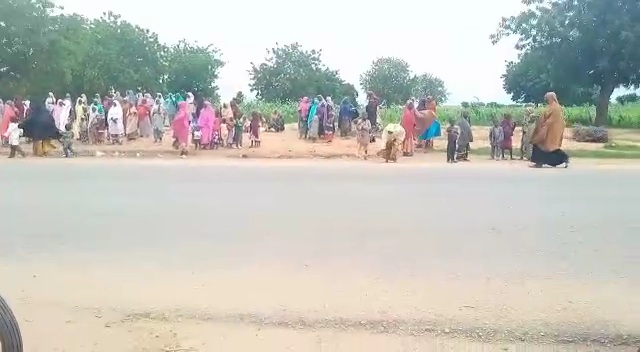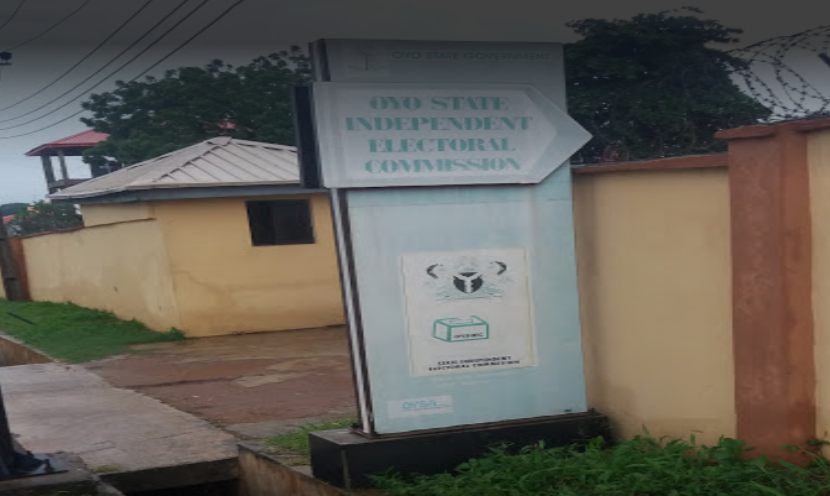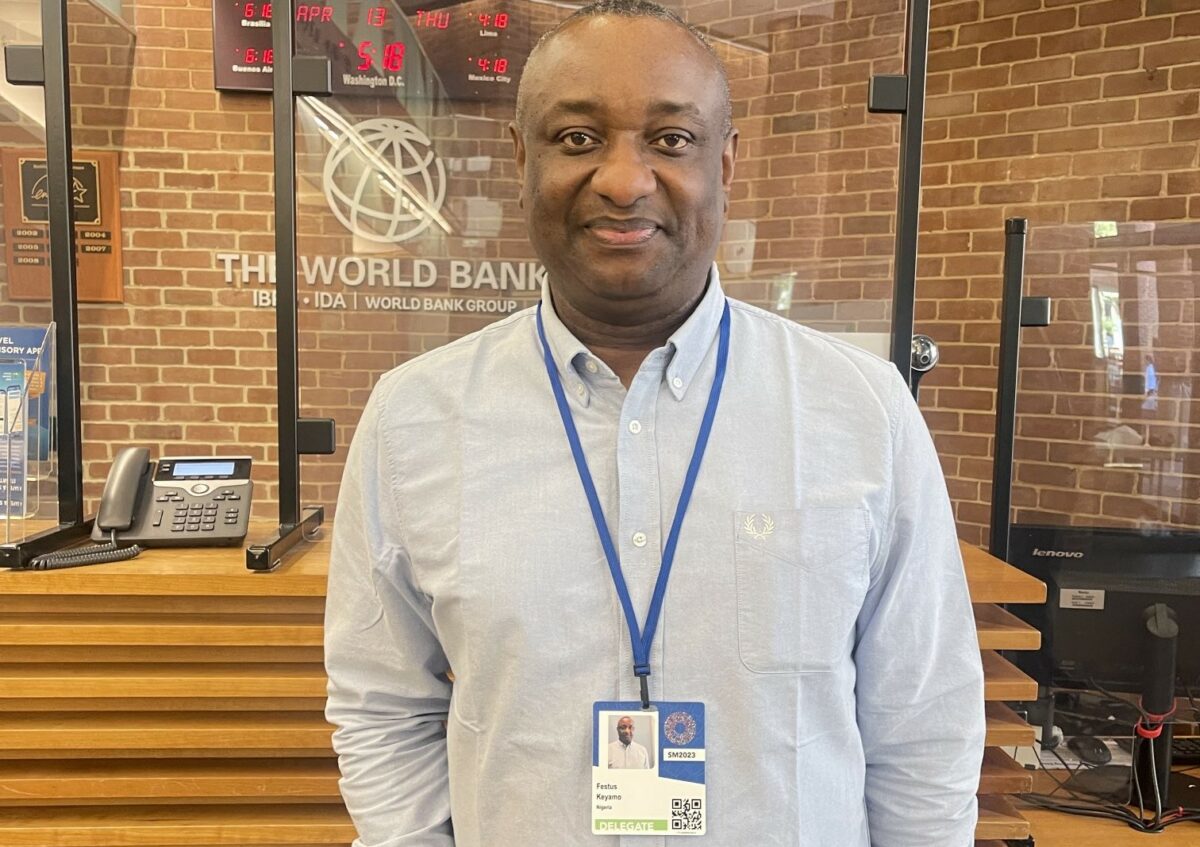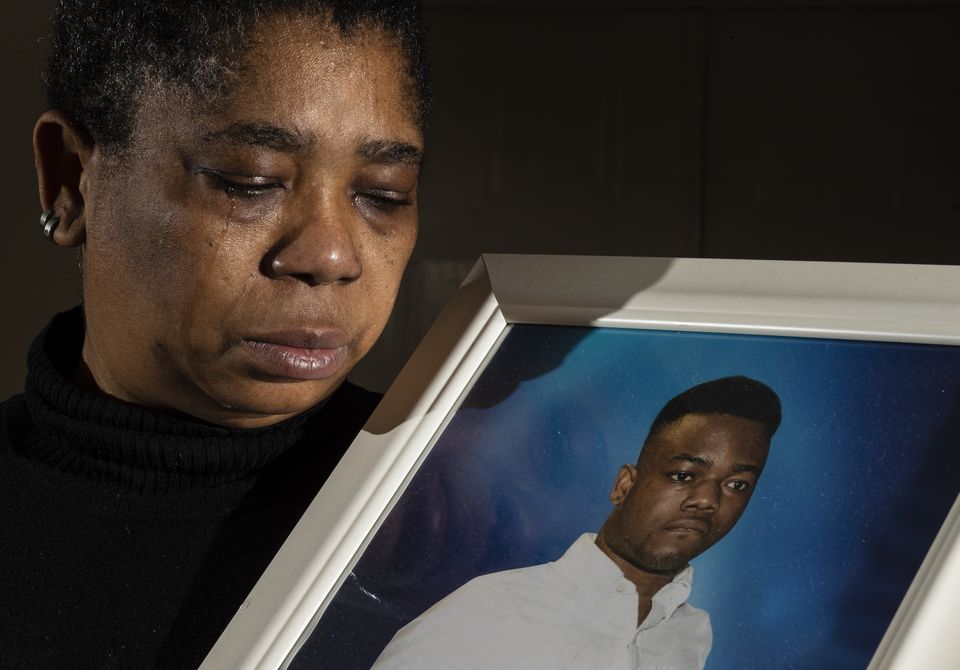Thousands of displaced people in Katsina State have three things in common: they are defeated, scattered and helpless. Some of them turned beggars, and those who swore against begging are slowly starving to death.
Sometime in March 2022, about a hundred of them loitering in Katsina’s government restricted area (GRA) fought over food and naira notes a compassionate pedestrian gave them, according to Murtala Muhammad, an eyewitness and resident of Katsina. The strong marched the weak while struggling to overshadow co-beggars. When the stampede ended, four of them had already suffocated to death and some severely injured were saved by a nearby hospital.
“Those who lived returned the following day because they had nowhere else to turn to,” revealed Muhammad.
Due to the rising banditry in Nigeria’s northwest region, residents of Katsina, the capital of Katsina State, are forced to welcome the displaced people trooping into the city from every corner of the state. They are everywhere, and they are nicknamed ‘Al-Muhajirun’, an Arabic term used for the Muslim Prophet’s companions who emigrated Makkah to escape persecution.
For Habibu Musa, 72, who fled his village, Kadoke, about two years ago, his post-emigration experience is as though he traded a decent living for security. His family is safe here, he claimed, but at what cost?
Two years after he escaped bandit persecution in his village, he said he did not enjoy the luxury of sleeping under a roof. He secured a shelter near Shinkafi, an area located on the outskirts of Katsina city, but the squalid uncompleted building overpopulated by other IDPs barely created a breathing space for his two wives and nineteen children.
Later, a fellow IDP told him about Alhaji Dahiru Mangal’s uncompleted buildings in the city, occupied by several other displaced people.
“There are rooms to lie down here,” said Musa. “Just that the days we go without food outnumber those times we eat.”
Musa could not force himself to turn into a beggar, but he could not stop his children. Most times, he goes to the bush, cuts some trees and sells. His wives wash plates as maids for middle-income earners in the area and are given food in return. Even with all these, he said, the whole family barely feed one time a day.
IN THE ABSENCE OF LAW
Terrorism, banditry and natural disaster have displaced more than 3.2 million people in Nigeria, and a national policy on internally displaced persons was designed to ensure assistance to these people by meeting their needs.
Among others, under paragraph 3.1.8 of this policy, Musa and elderly persons like him are entitled to basic needs, “including nutrition, shelter, water, sanitation and specialised health care”. And the provision of paragraph 4.1 sees the government put upon its neck the obligation “to provide goods and services necessary” to allow these people enjoy their rights.
But this policy, and others like it, is a government’s aspiration to achieve a target. Its failure to attain such an aspiration holds nobody liable or responsible.
Over the last two years of Musa’s displacement, he doubted the government’s knowledge of his existence or the knowledge of his condition. The highest he ever got from the government, he narrated, was a bowl of rice, a quarter bowl of millet and a quarter bowl of beans given to him and other displaced people in the area a year earlier. He could not even ascertain whether it was from the government or one of the rich people in the town.
When Musa knew it was his right and the government’s obligation to provide necessary basic needs for him, he said, “We have no idea ways through which we could seek [this] assistance.”
One of the agencies that could have been held accountable for IDPs’ neglect is the National Commission for Refugees, Migrants, and Internally Displaced Persons (NCFRMI). But this body, formerly known as the National Commission for Refugees (NCR), used to cater for the rights of the refugees and migrants alone with an enabling and enforceable law: National Commission for Refugees Act, 1989.
When the Federal Government added Internally Displaced Persons to NCR’s purview in 2006, the national assembly act that established the refugees’ commission remained the same, giving the commission no enforceable obligation or the displaced people justiciable rights.
And to have a change in the name and responsibilities of a commission established by an act of the national assembly without another act that amends or repeals the former one is inappropriate and a gross violation of the law, noted Festus Ogun, a human rights lawyer.
“Since the National Commission for Refugees is a creation of the law, the name can only be changed by law. From inception, such an act is irregular. The National Commission for Refugees, Migrants and Internally Displaced Persons without an act lacks a statutory backup and it will be difficult, if not impossible, to be held accountable.”
Five months ago, Hon. Imaan Sulaiman-Ibrahim, the Federal Commissioner for NCFRMI, said that the commission, with its new responsibility, did not have an act yet, and that a bill passed by the national assembly in 2018 awaited presidential assent.
READ ALSO: Unhappiness in Borno over Return of ‘Repentant’ Boko Haram Members
DISPLACED AND RE-DISPLACED
On Wednesday, the morning of August 3, the sun’s temperature rising from the eastern side stung the skin, but the hapless souls of the people standing along Katsina–Babar Ruga road gave no regard.
Scattered by the roadside were displaced people waiting for rides. Their faces were as worn-out as their faded clothes. They all had taken refuge and been living inside a hamlet near Babar Ruga, a village on the outskirts of Katsina, since being displaced from their respective homes. The previous night, bandits struck their abode again, murdered two people and took some hostage.
“Stop, there is no hope,” a woman in her 30s said in response to an interview request. “Many people have come to do this, yet it’s getting worse.” The rhythm of her voice was as quick as the steps of her leg. Her frustration was either from the shattered peace at a place she had thought was safe or the uncertainty her next destination held or both.
Amanatullah Lambar and her husband were still inside the settlement. She said they witnessed eight attacks in their home village in Murkutu, situated in the north of Bakiyawa in the Batsari Local Government Area of Katsina State, before escaping to this settlement seven months earlier.
“Whenever I heard they were coming, I would feel my soul exiting my body,” Lambar said of the circumstances that led to her displacement. “I felt extreme fear that I wouldn’t know what I was doing. That was why I pleaded that my husband let us leave, not minding if we turned to refugees elsewhere.”
Lambar has lost friends and family members to banditry since the attacks began on her village. But her greatest loss, she said, was her father-in-law who could not leave the village with them because he had a fever. Last month, news reached them of him being macheted on his way home from the farm.
At Babar Ruga, the couple has started to feel at home. Her husband and the eldest son work as labourers and their young children beg to feed themselves. She tried selling fura but the business was liquidated, now she sells pap.
“The only asset we had before our displacement was the goats my husband reared back in our home village. Unfortunately, we couldn’t take that along with us when we ran for our lives. Now, we barely see a hand to put in the mouth,” Lambar said as she struggled to fight back the tears already coursing down her cheeks.
“We did it all for peace, but even now the tension we ran away from has finally reached this new place of settlement,” she said.
To avoid loss of lives, the couple already discussed the certainty of re-displacement. Just the plan of where to find their next abode is an area of concern and a burden to bear.
This is the kind of problem the NCFRMI Bill could solve, noted Ogun. “If there is a law that gives rights and benefits to displaced people, then we could ask the ways and manners in which those rights could be enforced. The absence of such laws means there are no enforceable rights.
“One of the benefits is that this (National Commission for Refugees, Migrants and Internally Displaced Persons) bill, if signed into law, would make the rights of the IDPs adequately protected in line with global practices. It would legally widen the scope of the commission, and ensure its transparency and accountability,” he said.
Article 13 of the African Union Convention for the Protection and Assistance of Internally Displaced Persons, also known as Kampala Convention, which the bill seeks to domesticate, can make this happen. It would compel the Nigerian government to create and maintain an updated register of all internally displaced persons within its jurisdiction.
In addition, such an international convention, if domesticated, would “provide an appropriate legal framework for the protection and assistance of internally displaced person… where no legal instrument protects the housing, land and property rights of vulnerable IDPs,” revealed Ms Sulaiman-Ibrahim at a workshop in Lagos.
READ ALSO: BREAKING: Seven Slaughtered ‘by Herdsmen’ Near IDP Camp in Benue
NO WAY HOME
When the idea of becoming a refugee turned to a death trap – having difficulty in feeding – Abdulhamid Adamu, 45, one of the IDPs living in Alhaji Dahiru Mangal’s uncompleted buildings, thought of returning to Batsari, his hometown.
In the last week of June, he went to Batsari market to scout, then the feared incident happened. Bandits in disguise, unknown to traders, already infiltrated the market. “They brought out guns and started shooting sporadically,” he said. “Everyone ran for safety.”
After escaping from the market, it became difficult for him to return to Katsina because the bandits were waiting for escapees on the town’s outskirts until six cars full of soldiers led the way and escorted stranded escapees out of bandits’ jurisdiction.
Among others he could not recall, Adamu’s losses to banditry included two friends, four relatives and two former masters he worked for. Many of his friends have been displaced, and he fears he may never see them again. One of them is a relative who emigrated to Niger Republic as a displaced person after his elder brother was killed.
“You see, Batsari is my hometown. But even if you will give me one million naira, I cannot go back there,” Adamu swore. “Not only me, there are many people from Batsari that are scattered all across Katsina. If you say you will give them one million naira to go back to Batsari and live there now, they won’t accept it, despite being our hometown.”
This story was supported by the Centre for Journalism Innovation and Development (CJID) through funding support from the Institute of War and Peace Reporting (IWPR) under the Voices for Change Fellowship.
Subscribe
Be the first to receive special investigative reports and features in your inbox.















